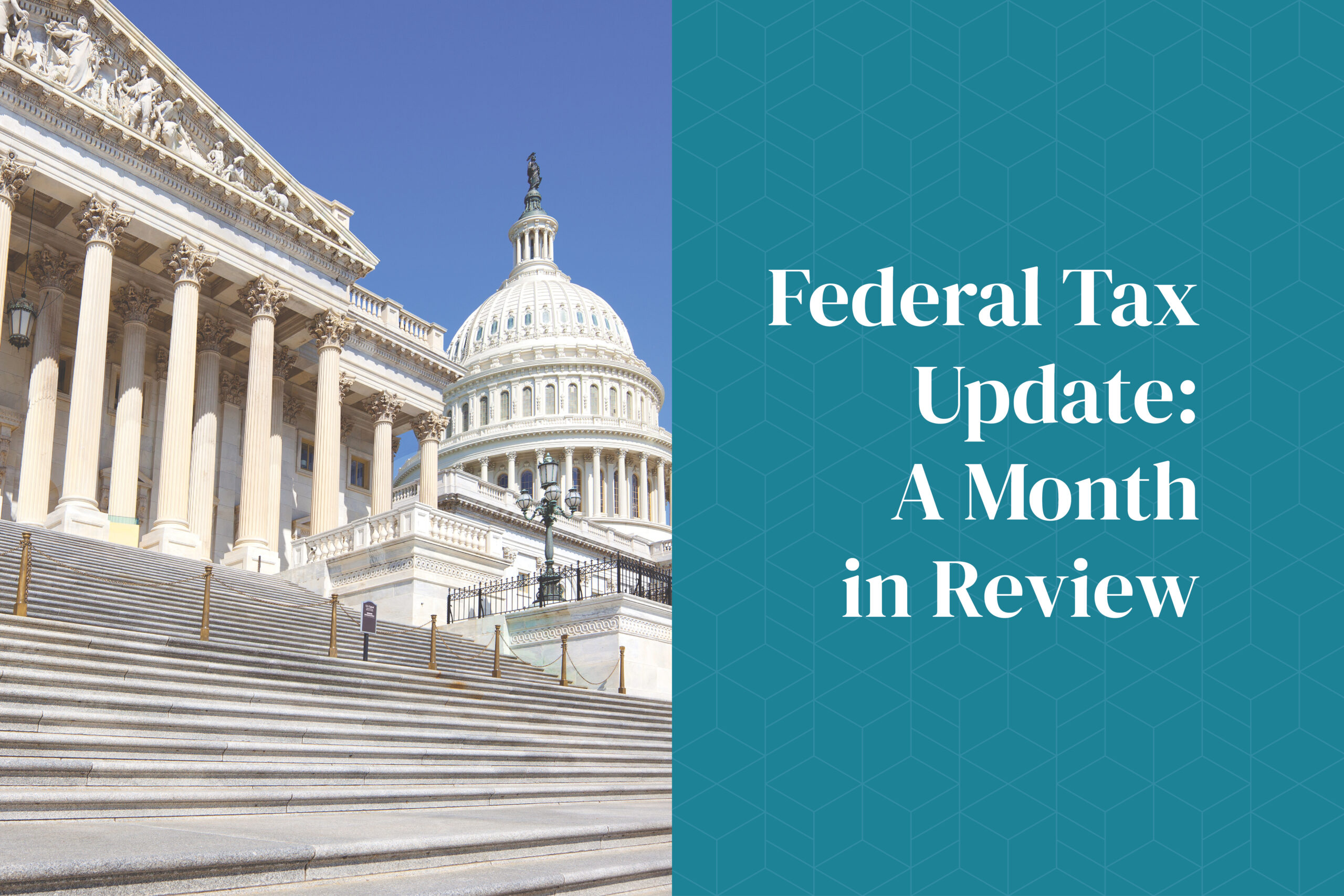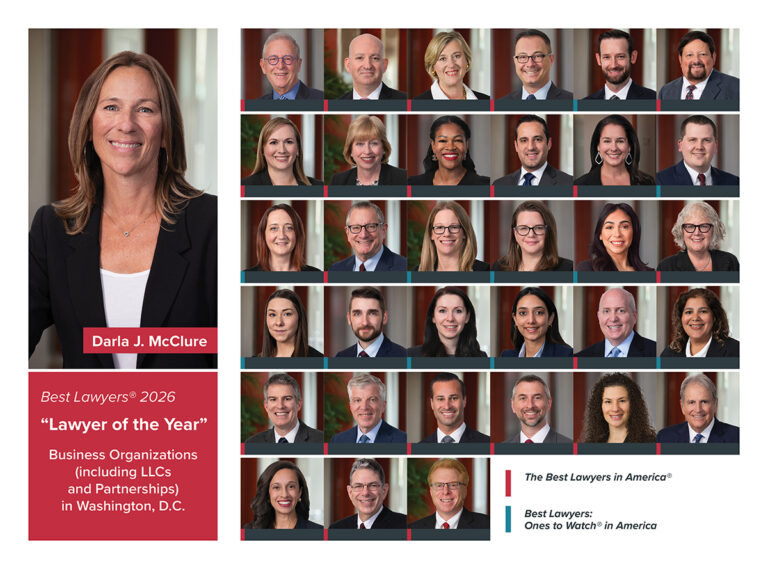April 8th, 2025
March Federal Tax Update
Posted in: Tax Law Tagged: David S. De Jong
Author: David S. De Jong

INDIVIDUALS
In Jaha v. Commissioner, TC Memo 2025-26, the Tax Court determined that a husband was domiciled in California rather than Oregon when he earned income from a business such that community property law made his wife liable for one-half of the income on a separate return.
In Smith v. Commissioner, TC Memo 2025-24, the Tax Court denied a depreciation deduction for a rental property when the taxpayer could not prove a value at the time of conversion to rental use, rejecting an estimate as a “guestimate”, also concluding that the taxpayer could not prove original basis due to issues associated with prior shared ownership.
In Cade v. Commissioner, TC Memo 2025-20, the Tax Court denied a charitable contribution deduction in excess of $284,000 for donating flooring materials, cobblestones and clothing to a church, the Court finding that there was a lack of written acknowledgement from the church and no qualified appraisals for the contributed items.
In Ranch Springs LLC v. Commissioner, 164 TC No. 6, the Tax Court rejected an appraisal of over $236,000 per acre for property allegedly to be used in mining when it was acquired just over one year prior for $6,500 per acre, concluding that the proper deduction for the conservation easement was $335,500 and not $25,814,000.
RETIREMENT AND ESTATE PLANNING
In Hubbard v. Commissioner, 135 AFTR2d 2025-998, the Sixth Circuit Court of Appeals reversed the Tax Court and held that a pharmacist sentenced to 30 years in prison for distribution of oxycodone did not have to report income on an IRA forfeited to the Government, the Court reasoning that ownership (complete dominion and control) passed to the government upon the Order.
In Kalikow v Commissioner, 135 AFTR2d 2025-831, the Second Circuit Court of Appeals affirmed a decision of the Tax Court requiring $6.57 million of undistributed income from a QTIP trust owed to the decedent to be included in the decedent’s estate as an asset but not did not allow an offsetting deduction to the QTIP for the liability, opining that, as the trust itself is not property of the estate, a liability that belongs to a QTIP trust does not affect the value of the underlying asset; the Court noted that this does not constitute double taxation and, in any event, there is no double taxation in that the estate would receive a charitable deduction as the settlement payment was left to a 501(c) (3) organization.
BUSINESS
The Department of Treasury announced that it would not enforce fines against US Citizens and domestic companies or their beneficial owners through FinCEN and would narrow the previous required reporting under the Corporate Transparency Act to foreign companies only; FinCEN Interim Final Rule requires existing foreign entities to register within 30 days of the Rule’s publication date and new foreign entities to register within 30 days of receiving notice confirming registration.
In Small Business Association of Michigan v. Yellen, 135 AFTR 2d 2025-834, a Michigan Federal District Court concluded that the Corporate Transparency Act violates the Fourth Amendment as an unreasonable search and seizure; the Judge compared the data collection to the Government overreach in George Orwell’s “1984.”
In CF Headquarters Corporation v. Commissioner 164 TC No. 5, the Tax Court held that $3.1 million received under a state grant program by Cantor Fitzgerald which lost 658 employees in the 2001 terrorist attacks was taxable as this was not a contribution to capital inasmuch as the funds did not become a permanent part of working capital structure, not a gift because the State lacked donative intent and expected economic benefits in return and not a qualified disaster relief payment as that provision applies only to individuals.
In Bibeau v Commissioner, the US Supreme Court declined to hear an appeal from the Eighth Circuit Court of Appeals at 134 AFTR2d 2024 – 5114 which affirmed the Tax Court in concluding that a Chippewa tribe member was liable for tax on self-employment income from his law practice on tribal territory in the absence of a specific treaty exempting the income.
In Actavis Laboratories FL v. United States, 135 AFTR2d 2025-1010, the Federal Circuit Court of Appeals agreed with the US Court of Claims that a drug manufacturer of a generic brand could deduct the cost of defending against patent infringement claims which should be considered separate from seeking FDA approval which costs must be capitalized and amortized.
In Jones v. Commissioner, TC Memo 2025-25, the Tax Court rejected a deduction for insurance premiums paid to a “microcaptive” insurance company as the company did not pay premiums commensurate with the risk, the premiums were excessive and the contracts were not arms length and were inconsistent with operations of a normal insurance company.
In Dreyer v. United States, 135 AFTR2d 2025- ___, the Ninth Circuit Court of Appeals agreed with a California Federal District Court that the Chair of the Board of a school was personally liable for trust fund taxes when he had actual knowledge of the unpaid liability, the Court noting that assessment requires only an intentional act to prefer other creditors over IRS and not necessarily an intent to defraud.
PROCEDURE
In an Executive Order, the White House announced that effective September 30, 2025, the Government will cease issuing paper checks in favor of electronic payment except in very limited circumstances and as soon as practicable the Government will cease accepting paper checks also with very limited exceptions.
In United States v. Leeds, 135 AFTR2d 2025-892, an Idaho Federal District Court ruled that an FBAR penalty can continue to be asserted against the estate of a decedent but could not be imposed against the widow or her assets as she had no knowledge of or access to the account.
In United States v. Earnest, 135AFTR 2d 2025-__, the Fifth Circuit Court of Appeals declined to overturn a jury conviction in Mississippi Federal District Court against three preparers who had claimed millions of dollars in Earned Income Credits and American Opportunity Tax Credits without substantiation of eligibility, the Court rejecting the preparer’s argument that the Government putting only nine taxpayers out of thousands on the witness stand was improper.
In Klock v. Commissioner, Docket No. 495-25, the Tax Court dismissed a Petition which was filed electronically six minutes after the midnight deadline on the 90th day, the pro se individual from California being unaware that the deadline was Eastern Time.
In United States v. Gora, 135 AFTR2d 2025-854, a Minnesota Federal District Court ruled that a tenant was liable for failure to pay over monthly rent to IRS as directed instead of to the landlord; the Court also held that the levy continued month-to-month as payments were fixed and determinable.
In United States v. Stoll, 135 AFTR2d 2025-845, a Washington Federal District Court allowed IRS to foreclose on a couple’s joint “family trust” which it determined to be a sham and either a nominee for or alter ego of the individuals.
In United States v. Stover, 135 AFTR2d 2025- 927, the Fourth Circuit Court of Appeals reversed a North Carolina Federal District Court which had granted summary judgment to the Government and had held the statute of limitations on collection to be open based solely upon the transcript which the taxpayers disputed.
In Pfirrman v. Commissioner, TC Memo 2025-22, the Tax Court held that a taxpayer could not challenge the underlying tax liability in a passport revocation proceeding in that he has had a prior opportunity to raise issues; the Court also ruled that partial payment reducing the liability under the threshold did not cause reversal of the certification.
In United States v. Stacey, 135AFTR 2d 2025 – ___, a Texas Federal District Court allowed IRS to retain all of the proceeds of the sale of property, concluding that the spouse could not claim a 50 percent interest after previously being given Innocent Spouse Relief based on a representation that she had no assets.
In United States v. Miller, 135 AFTR2d 2025-__, the US Supreme Court by an 8-1 decision held that bankruptcy trustees may not claw back allegedly fraudulent payments made to the Internal Revenue Service more than two years before filing for bankruptcy despite a Utah fraudulent transfer statue allowing for a longer lookback.
In Internal Revenue Service v. Lowe, 135AFTR 2d 2025-1078, a Texas Federal District Court held that estimated tax payments made by a bankrupt couple within six months of filing were not fraudulent conveyances, the Court reversing the Bankruptcy Court by reasoning that the debtors received dollar for dollar credit against their future tax liability and satisfied a present debt by a bona fide estimate of the liability.
In Revenue Procedure 2025-17, IRS announced relief for individuals who would likely have met the bona fide residency or income earned abroad criteria for exclusion of income except for having to depart the country due to war or unrest and allowed them to claim the income earned abroad exclusion; for 2024, this applies to individuals in Ukraine, Iraq, Haiti and Bangladesh departing after specified dates.






